Results
-
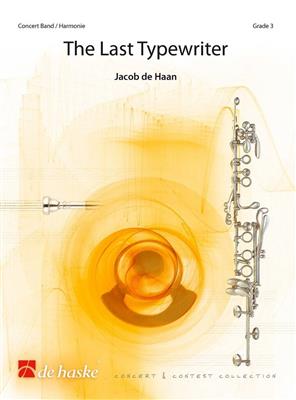 £91.99
£91.99The Last Typewriter - Jacob de Haan
This work describes the history and development of the typewriter in the newspaper world. The typical typing sound is the connecting thread, while a variety of music styles follow one another. In the end, the old familiar writing device is defeated when it has to make way for the computer. The composition features solos for various instruments that accompany the recurring typewriter. In a theatrical context, offering room for original ideas, the musical narrative will come across even better.
Estimated dispatch 7-14 working days
-
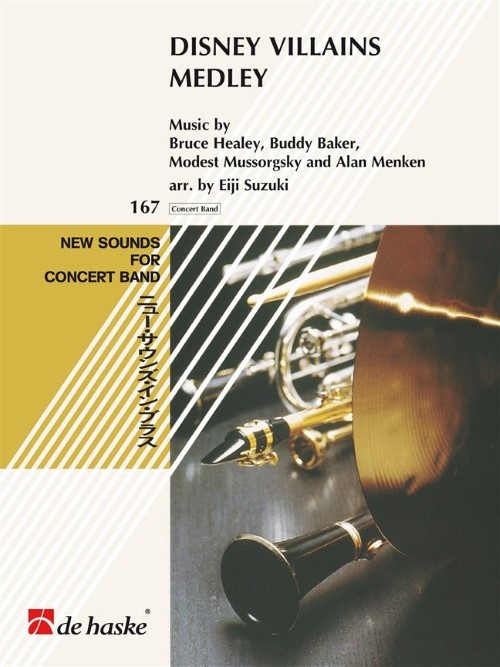 £104.99
£104.99Disney Villains Medley (Concert Band - Score and Parts) - Suzuki, Eiji
Who doesn't like the bad guys in the movies? We all know they will lose in the end, but maybe we're rooting for them a little. Enjoy this Disney Villains medley! Includes: The Evil Villians; Grim Grinning Ghosts; A Night on Bald Mountain; Poor Unfortunate Souls; The Light Turns into Night and the Ghouls Dance.Duration: 5.00
Estimated dispatch 7-14 working days
-
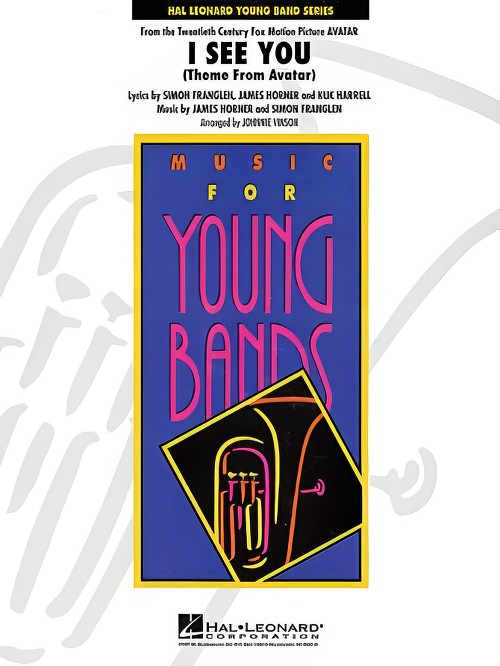 £57.50
£57.50I See You (Theme from Avatar) (Concert Band - Score and Parts) - Vinson, Johnnie
From the ground-breaking movie blockbuster Avatar, here is the main theme used in the end credits. Johnnie Vinson's sensitive arrangement features light woodwind scoring in the beginning then builds into a powerful setting for the entire ensemble.Duration: 3.15
Estimated dispatch 7-14 working days
-
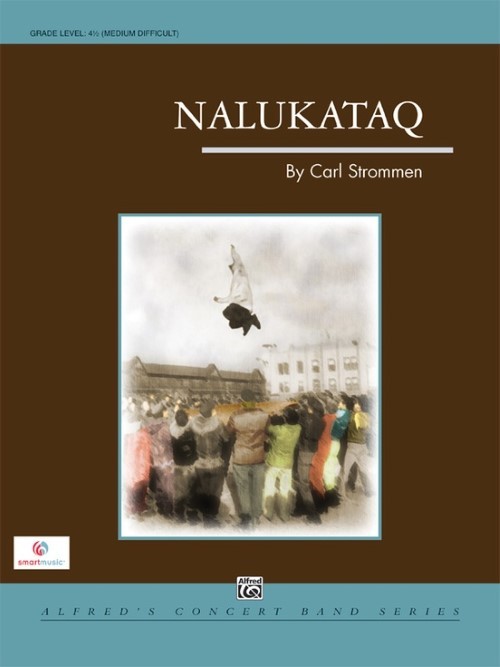 £73.50
£73.50Nalukataq (Concert Band - Score and Parts) - Strommen, Carl
The festival of Nalukataq (Nah-loo'-ka-tahk) (the blanket toss) takes place in June and marks the end of a safe and successful whaling season. Nalukataq describes the events prior, during and after the hunt. Very exciting and uplifting!
Estimated dispatch 7-14 working days
-
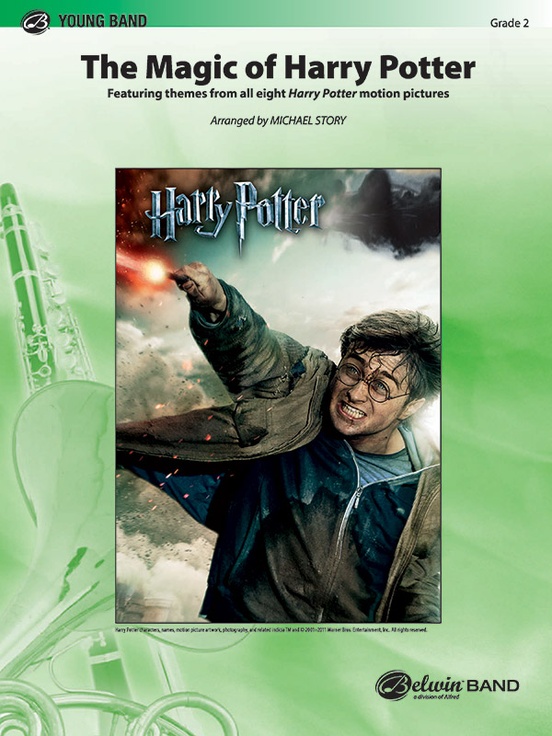 £73.50
£73.50The Magic of Harry Potter - Alexandre Desplat and John Williams / arr. Michael Story
Relive the magic of all eight films! This composite medley represents each of the exciting film scores. The themes included are "Hedwig's Theme" and "Nimbus 2000" from , "Fawkes the Phoenix" from , "Double Trouble" from , "Hogwarts' Hymn" from , "Dumbledore's Army" from , "Harry and Hermione" from , "Ministry of Magic" from , "Showdown" from , and "Leaving Hogwarts," which appeared at the end of both the first and last movies. Charismatically scored and arranged by Michael Story, featuring a variety of solo/soli segments to feature your best players and provide ample rests, this medley will ensure that Harry's conjuring enchantment lives on for generations to come. (6:00) This title is available in MakeMusic Cloud.
Estimated dispatch 3-5 working days
-
£104.99
Flashing Winds (Concert Band - Score and Parts) - Van der Roost, Jan
This flashing piece was commissioned by 'Het muziekverbond van West-Vlaanderen' and is dedicated to the 'Arlequino' youthband. Colourfully and effectfully instrumentated, this piece speeds towards its finale without any tempo changes. The chord-blocks, which characterized the introduction, unite this virtuoso piece by reappearing in the end.Duration: 4:00
Estimated dispatch 7-14 working days
-
 £102.99
£102.99Cast Away (End Credits) - Alan Silvestri
In 2000, the movie Cast Away stormed into cinemas and received two Oscar nominations in the process. It follows the story of a man (played by Tom Hanks) who gets stranded on an island after the plane he is traveling on crashes. As the sole survivor, he does his best to keep himself alive while facing a rather bleak situation. An interesting feature about this film is that after hearing an Elvis song and a Russian choir, no music is heard again until the end of the movie, over 100 minutes later! Aidan Thomas creates a moving arrangement of the end credits music.
Estimated dispatch 7-14 working days
-
 £75.50
£75.50The Dream of Tiberius - David Campo
The Roman Emperor Tiberius was born in 42 BCE to Tiberius Claudius Nero and Livia Drusilla, both descendants of prestigious political families, at a time when Rome was undergoing significant political upheaval. Julius Caesar had begun a brutal civil war in 49 BCE to end Rome's rule as a Republic and consolidate his power as supreme ruler. Following Caeser's assassination in 44 BCE, Tiberius' father backed the forces wishing to return Rome to a Republic, but they were defeated by Caesarian loyalists led by Caeser's heir Octavian. As a result, Tiberius' early life was spent on the run and in political exile with his parents. In 27 BCE, Octavian would become the first Emporer of Rome and assume the name Augustus. Augustus forced Tiberius' parents to divorce and took Tiberius' mother as his new bride, separating the family and forcing Tiberius to live with his father. Upon his father's death, Tiberius went to live with his mother and Emporer Augustus, a situation Tiberius found extremely uncomfortable but one over which he had no control. Having been adopted by the Emperor, Tiberius assumed the military and political life thrust upon him. He proved to be an outstanding military and political leader, and with his marriage to Vipsania Agrippina his life took on a heretofore unknown stability. However, Augustus would intervene in Tiberius' life once more, forcing him to abandon his happy marriage and take Augustus' daughter Julia (Tiberius' step sister) as his new wife. This arrangement, while securing Tiberius' place as Augustus' heir and ensuring he would one day be Emperor of Rome, was disastrous. Julia's drunken licentiousness was a constant source of scandal and embarrassment for Tiberius (and her father, the Emperor) and she was eventually exiled by her father Augustus. Tiberius was named Emperor of Rome upon the death of Augustus in AD 14, assuming his position as the most powerful man on Earth. However, no matter how powerful he had become, Tiberius never felt as if he had ever had any control over his life, having been manipulated from childhood through adulthood by the whims of Augustus. As Emperor, he soon became disgusted with the political intrigue of the Roman Senate and by AD 26 left Rome and took up residence on the island of Capri, where he lived out the rest of his life. History does not regard Tiberius fondly and by all accounts towards the end of his reclusive life on Capri, he had become a miserable, sick and mentally unstable old man reveling in debauchery and cruelty. It is also informative to note that he was Emperor of Rome when Jesus of Nazareth was crucified, and while there is no indication that Tiberius was even aware of the existence of Jesus, as Emperor he was responsible for the appointment of Pontius Pilate as Governor of Judea. Even considering this, it is difficult to look on the life of the Emperor Tiberius and not feel some sympathy and pity. It's in this spirit that I composed "The Dream of Tiberius." I imagine the man sitting in thoughtful seclusion on the beautiful island of Capri imagining what his life might have happily been had not power been thrust upon him: husband, father and humble servant of the people.
Estimated dispatch 7-14 working days
-
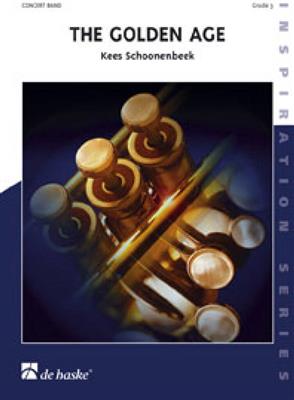 £139.99
£139.99The Golden Age - Kees Schoonenbeek
The Golden Age is a programmatic composition in four movements. I Overture For the Netherlands, the seventeenth century was a period of great flourishing in the fields of economy, culture and politics; thus it is called the Golden Age. Overseas trade boomed, and the Dutch East India Company (known as the VOC by the Dutch) was founded and expanded to become a powerful -and, at the time - modern enterprise. II Adis espaoles!(Farewell, Spaniards!) In 1567, the Spanish army invaded, led by the Duke of Alva. There was a fierce resistance against the Spanish tyranny; toward the end of the sixteenth century, the Dutch proclaimed theRepublic. However, the Spanish continued the war. Only with the Treaty of Mnster in 1648 did the Dutch get their much sought-after independence. This was also the end of the Eighty Years' War. III Rembrandt's Night WatchThe field of culture, particularly literature, painting, sculpture, architecture, the art of printing, and cartography developed fast. It was in the Golden Age that the celebrated painter Rembrandt van Rijn created his famous Night Watch. IV The Admiral Overseas trade entailed the colonization of large areas in Asia, from where precious products that yielded lots of money were brought in. Surrounding countries were also involved in such practices. Colonizers poached on each other's territories in the literal and figurative sense - in this context the Anglo-Dutch Sea Wars are legendary. The fourth movement starts with the English patriotic song Rule Britannia, after which the Dutch Admiral Michiel de Ruyter makes the English change their tune; one can even hear the roaring of cannons. When the smoke of battle has cleared, a small fragment of a Dutch song about Michiel de Ruyter appears, followed by a fitting closing.
Estimated dispatch 7-14 working days
-
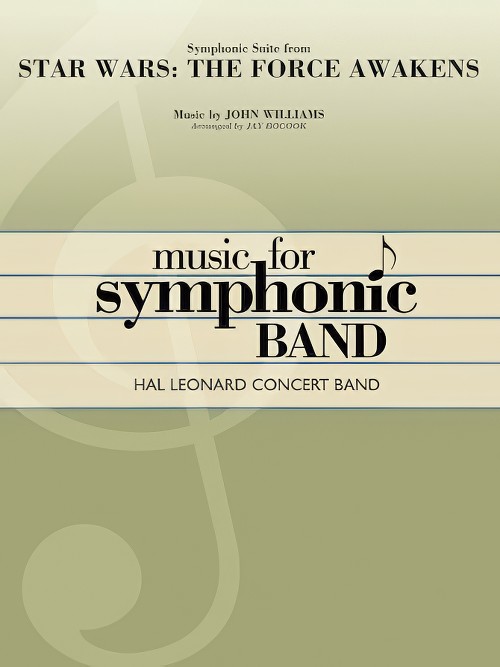 £89.99
£89.99Star Wars: The Force Awakens, Symphonic Suite from (Concert Band - Score and Parts) - Williams, John - Bocook, Jay
Utilising the distinctive Jedi Steps theme featured at the end of the film, combined with the rousing Finale from the end credits, Jay Bocook authentically recreates the beauty and power of this amazing film score. Courtesy of Mr. Williams himself, an alternate "concert ending" is provided in addition to the quiet ending as heard at the end of the film.
Estimated dispatch 7-14 working days
